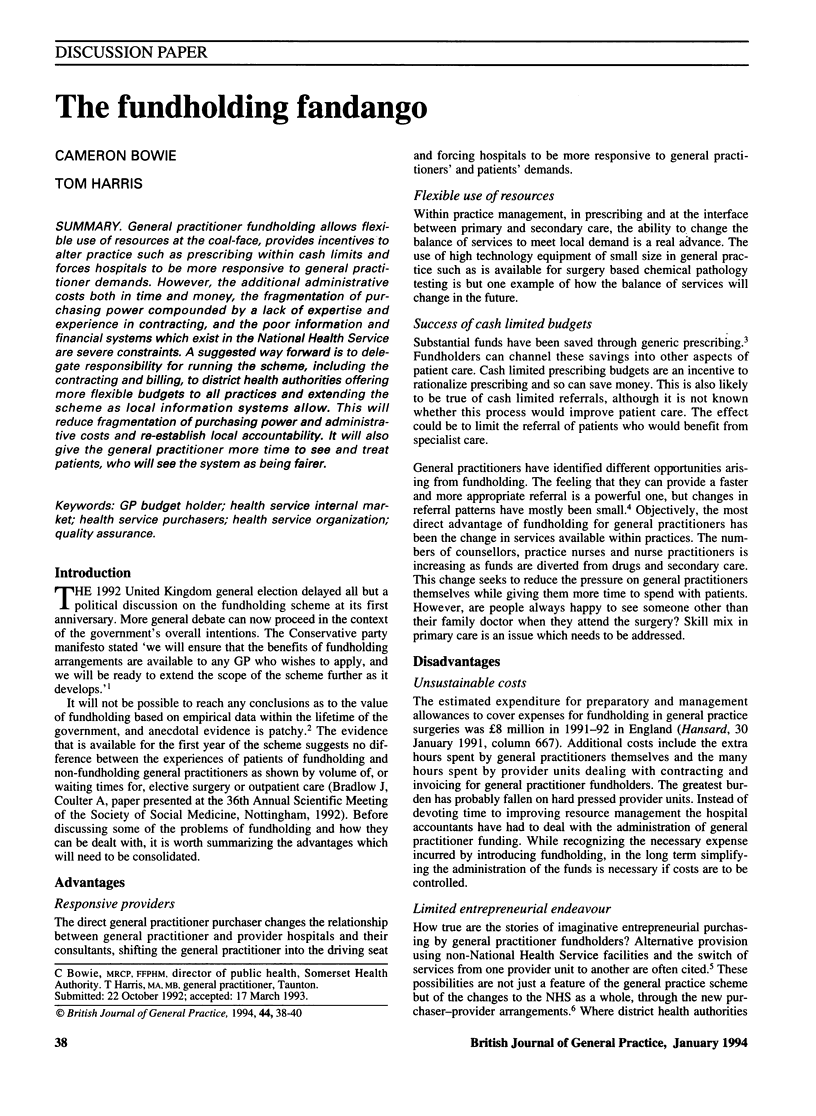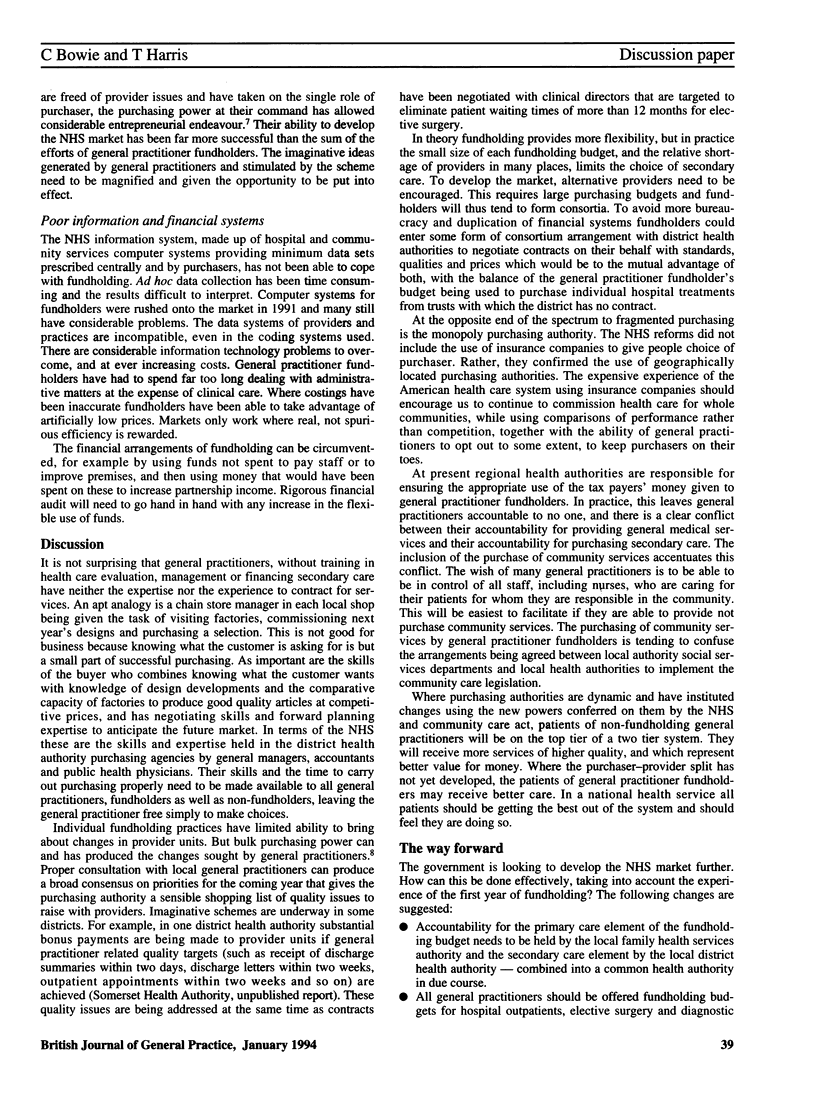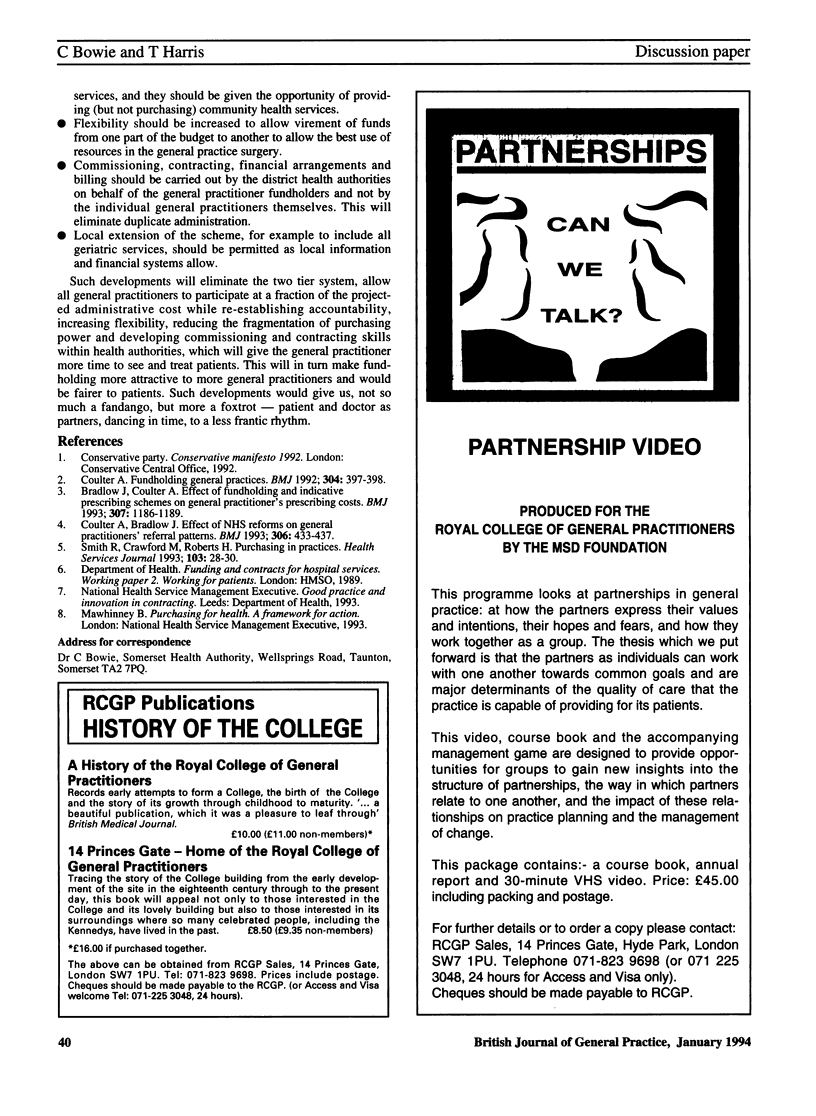Abstract
General practitioner fundholding allows flexible use of resources at the coal-face, provides incentives to alter practice such as prescribing within cash limits and forces hospitals to be more responsive to general practitioner demands. However, the additional administrative costs both in time and money, the fragmentation of purchasing power compounded by a lack of expertise and experience in contracting, and the poor information and financial systems which exist in the National Health Service are severe constraints. A suggested way forward is to delegate responsibility for running the scheme, including the contracting and billing, to district health authorities offering more flexible budgets to all practices and extending the scheme as local information systems allow. This will reduce fragmentation of purchasing power and administrative costs and re-establish local accountability. It will also give the general practitioner more time to see and treat patients, who will see the system as being fairer.
Full text
PDF


Selected References
These references are in PubMed. This may not be the complete list of references from this article.
- Bradlow J., Coulter A. Effect of fundholding and indicative prescribing schemes on general practitioners' prescribing costs. BMJ. 1993 Nov 6;307(6913):1186–1189. doi: 10.1136/bmj.307.6913.1186. [DOI] [PMC free article] [PubMed] [Google Scholar]
- Coulter A., Bradlow J. Effect of NHS reforms on general practitioners' referral patterns. BMJ. 1993 Feb 13;306(6875):433–437. doi: 10.1136/bmj.306.6875.433. [DOI] [PMC free article] [PubMed] [Google Scholar]
- Coulter A. Fundholding general practices. BMJ. 1992 Feb 15;304(6824):397–398. doi: 10.1136/bmj.304.6824.397. [DOI] [PMC free article] [PubMed] [Google Scholar]
- Smith R., Crawford M., Roberts H. Purchasing in practice. Health Serv J. 1993 Apr 1;103(5346):28–30. [PubMed] [Google Scholar]


